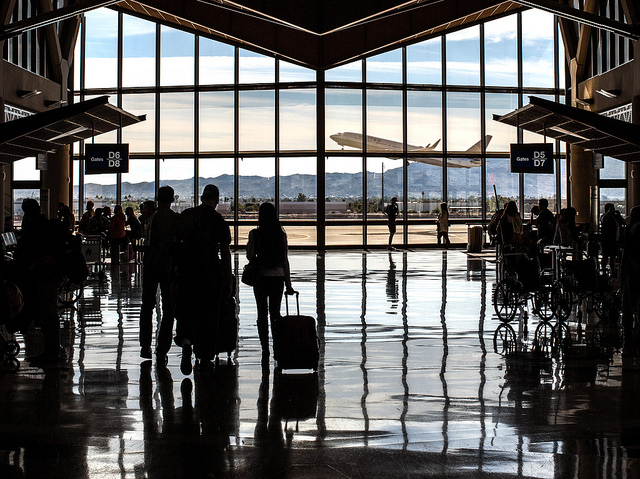 On Monday, December 4, 2017, the United States Supreme Court issued an order allowing enforcement of the President’s latest travel ban in its entirety, pending legal challenges in lower courts. In its brief order, the Court signaled its desire for the appellate court to address any challenges to the travel ban, swiftly. Justices Ruth Bader Ginsburg and Sotomayor were the only justices who would have blocked the latest travel ban from going into effect.
On Monday, December 4, 2017, the United States Supreme Court issued an order allowing enforcement of the President’s latest travel ban in its entirety, pending legal challenges in lower courts. In its brief order, the Court signaled its desire for the appellate court to address any challenges to the travel ban, swiftly. Justices Ruth Bader Ginsburg and Sotomayor were the only justices who would have blocked the latest travel ban from going into effect.
The court’s order means that the Trump administration may enforce all of the provisions of the President’s latest travel ban, until the federal courts hand down rulings on the constitutionality of the ban. As you may recall, non-US citizens affected by travel ban 3.0 include nationals of Chad, Iran, Libya, North Korea, Syria, Venezuela, Yemen, and Somalia.
The travel ban DOES NOT affect lawful permanent residents of the United States (green card holders), foreign nationals granted asylum, refugees admitted to the United States, or dual nationals traveling on a passport from a non-designated country.
Travel Ban 3.0 applies to the following classes of immigrants and non-immigrants
- Chad: all immigrants and non-immigrants (including B-1 and B-2)
- Iran: all immigrants and non-immigrants except for F, M, and J visa holders but Iranian nationals seeking these types of visas will be subject to enhanced vetting
- Libya: all immigrants and non-immigrants (including B-1 and B-2)
- North Korea: all immigrants and non-immigrants
- Syria: All immigrants and non-immigrants
- Venezuela: Limited to suspension of the entry of certain government officials of agencies in Venezuela and their immediate relatives visiting the United States on non-immigrant B-1 or B-2 visas. Nationals of Venezuela “who are visa holders” may be subject to additional measures to ensure that their traveler information is current.
- Yemen: all immigrants and non-immigrants (including B-1 and B-2)
- Somalia: all immigrants. Visa adjudications for nationals of Somalia and decisions regarding their entry as non-immigrants may be subject to additional scrutiny to determine connections to terrorist organizations or threats to national security and public safety.
- The Secretary of Homeland Security has recommended that nationals of Iraq be more heavily scrutinized when seeking entry to the United States to determine any potential terrorist risk they pose to the United States.
The Supreme Court’s decision signals that the Trump administration may have found an ally in the Supreme Court given that only two justices voiced their opposition to the court’s decision. The Supreme Court previously blocked portions of travel ban 2.0 from going into effect, which prompted the administration to revise the travel ban so that it would pass constitutional muster.
The White House responded to the Court’s decision through a spokesperson, “We are not surprised by today’s Supreme Court decision permitting immediate enforcement of the President’s proclamation limiting travel from countries presenting heightened risks of terrorism. The proclamation is lawful and essential to protecting our homeland. We look forward to presenting a fuller defense of the proclamation as the pending cases work their way through the courts.”
Challenges against the travel ban will continue to make their way through the courts. In Hawaii, a district court judge had blocked the ban from going into effect except as to Venezuela and North Korea, however the 9th Circuit Court of Appeals lifted that judge’s order ruling that the ban should be enforced except as it pertains to foreign nationals who have a bona fide relationship with a person or entity in the United States. An appeal is pending in that care.
In Maryland, parts of the ban have been blocked, and the case is pending before the Fourth Circuit Court of Appeals. Arguments will be heard on both of those cases this week.
 Visa Lawyer Blog
Visa Lawyer Blog



